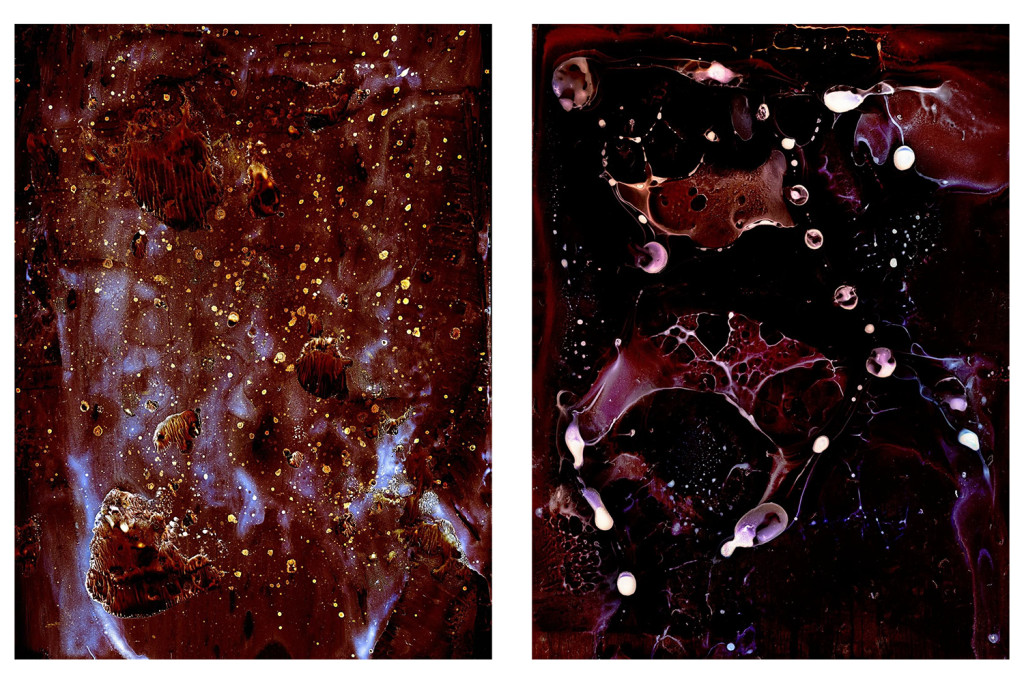Twilight Zone
Arnau Blanch
Opening at Wer-Haus 15.09.16 20:00
Interested in the psychological effects of opium in dreams, Arnau Blanch’s research runs towards the different states of consciousness, and unconsciousness from the use of this substance.“It’s like being suspended in a twilight zone between sleep and wakefulness. Nothing matters, and everything is fine.”
This project explores the non-figurative expression of the form and materials of the photographic image and of the imagination, playing between the limits of what is pictorial and what is photography. The altered state of perception resulting from the use of analgesic and narcotic substances like opium and the use of experimental camera-less processes has allowed Arnau to make this series of complex abstract images.
This is why these large format pieces that shape the artwork are presented emulating the construction of the origin of material photography: the negative. Different translucent layers overlap over the emulsion diffracting visible light beams in different ranges of tones. This finish allows us to add a certain formal investigation over the different stratums that compose each image to the expressive abstraction of the process.
In the search of bringing my sensitive experience to a tangible and visible world. I have made a series of large format pieces where the materials, tones, forms and supports of the photographic medium gain the whole limelight.
If we perceive photography as an experience and expression, as a shape and a colour, as a tool to transport the reader to emotional states altered by the repeated use of opium. If we are capable of internalizing surfaces varying between the aquatic and the geological, the microscopical and the stratospheric. If we substitute the logics and aesthetics of Euclidean geometry for the apparently random patterns of Fractal geometry, where we find no beginning or end. But it doesn’t even matter.
If we immerse ourselves in the expressiveness of abstraction and lose ourselves in emotions aroused by human intervention in the raw supports and materials of the image when it acts beyond the frontiers of reason.
If we free ourselves from everything we take for granted, from the barriers between sleep and wakefulness, between consciousness and lethargy. If we rethink the margins of visuals as porous spaces where the canons of photography and paint mingle freely.
If we travel where the camera does not reach, where narcotics take us, where the content is not described but reached, only then, will we enter the Twilight Zone.
Jon Uriarte, 2016

